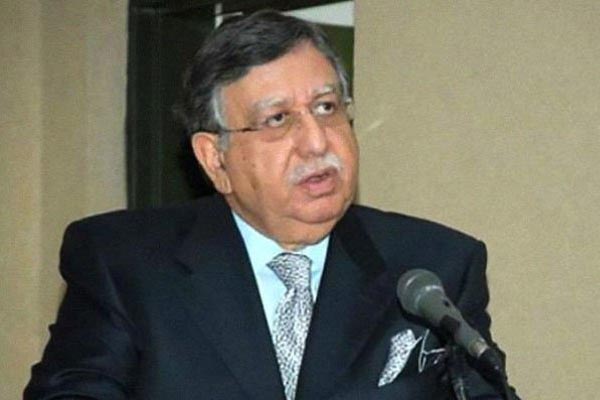
No Credit
Finance minister reiterates dissatisfaction with IMF program, vows to expand tax net rather than increasing existing rates
Finance Minister Shaukat Tarin on Monday rejected his predecessor’s policy of focusing on “stabilizing the economy,” claiming Pakistan could no longer afford this, and should instead shift to boosting economic growth.
“The country will be at God’s mercy for the next four years” if the government cannot boost GDP growth to 5 percent, he warned while testifying before the National Assembly’s Standing Committee on Finance. He reiterated his dissatisfaction with the conditions set by the International Monetary Fund (IMF) to resume an Extended Fund Facility, stressing that he would try to explain the situation to the global lender to secure more favorable terms.
“The IMF did injustice to Pakistan; their demand to increase the electricity tariff is unjustified,” he said of the lender’s demand for Pakistan to raise the tariff to resolve the circular debt. He claimed that the government would take alternative measures to reduce circular debt instead of tariff increases. He said he was trying to have the IMF’s terms changed in light of the ongoing third wave of the pandemic.
Stressing that the country had been in “stabilization” mode since 2019, he promised to increase the public-sector development program in the upcoming budget so all provinces would have opportunities for economic growth. Noting that price hikes had halted economic growth and boosted corruption, he added: “The increase in tariff is leading to a rise in inflation. We have told the IMF that we will reduce the circular debt but increasing the tariff is unjustified.” While acknowledging that the country’s revenue was on an upswing, Tarin warned that “tough decisions” were needed to revive the economy. “Instead of adding taxes, there is a need to increase the tax net,” he said, adding that the chances for any harassment by FBR officials would be eliminated through revised audit procedures.
He said the sales tax system needed to be improved, noting that 17 percent GST was “very high.” He claimed the government was also working on a sales tax system for small businesses. “Our country lacks short-term, medium-term and long-term policies,” he lamented and cited the examples of China, Turkey, and India as prospering nations that had consistent economic policies.
The finance minister, who assumed charge last month, said the government needed to improve its agriculture, industries, housing, and price control policies. He noted that the country’s mortgage comprised 0.25 percent of its GDP, compared to 80 percent of the U.S., adding that if the housing sector were revived, then 20 other industries would also profit.
Regretting that 85 percent of provincial revenues were being spent on nine major cities, Tarin noted that health and education were underfunded nationwide. “The government should privatize all institutions that it cannot run,” he said.
The finance minister also criticized the high policy rates of the State Bank of Pakistan prior to the pandemic last year. “It was a mistake to keep policy rate at 13.25 percent,” he said, claiming Pakistan’s exports had stagnated because foreign investment was limited and most businessmen were operating solely for the domestic market.
